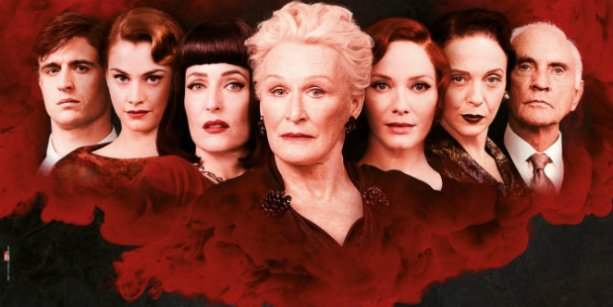Not Among Her Best, But a Must-Read for Christie Fans

One of the very last books by Agatha Christie to receive a film adaptation is Crooked House (1949). It finally happened last year (2017). No Hercule Poirot and no Miss Marple here – that might explain the lack of moviemakers’ interest for decades. On the other hand: Christie herself considered Crooked House one of two favourites among her own writings. Too much praise? This is a review of Christie’s original novel.
Authors aren’t the best judges of their own writings. Just think of all the writers who insisted on burning some of their finest creations (Kafka stands out) – and only because others betrayed their trust and disregarded their wishes, some literary classics survived.
It goes in the opposite way, too: just because a book is a favourite for a writer among his/her own writings, that doesn’t guarantee the book is going to be excellent.
Crooked House (released in 1949, but taking place in 1947) isn’t bad by any means; it’s very good, but I wouldn’t rank it among Christie’s finest books – not even in her top 20. The previous Christie book I happened to read was Murder Is Easy – a superb one, which likewise lacks Poirot or Marple, but, as I see it, deserves its accolades.
Yes, it may be that Christie enjoyed writing Crooked House a lot more than others among her many dozens of books – but that doesn’t mean readers are going to be equally delighted.
In fact, Christie said her other favorite among her own writings was Ordeal by Innocence (1958) which I thought was downright mediocre. It, too, lacks Poirot or Marple; Christie seems to have hated her 2 most famous characters, the ones most beloved by her readers; well, she was exasperated by Poirot – that much we do know.
Humdrum Despite Praise
You can’t rely on the judgment of reputable critics, either. Back in 1949, Maurice Richardson in The Observer lauded Crooked House, comparing it favourably with Taken at the Flood, released a year earlier. Well, my judgment is the exact opposite: I rank Taken at the Flood among Christie’s masterpieces (which are hard to come by post-World War II).
Crooked House might be perceived by some as a rather slow and dull read. At the same time, I disagree with some harsh voices proclaiming that in this Christie book, too, “cardboard characters” are present. I thought the characters in this book were nicely drawn and clearly delineated – believable to me.
No – it’s just that the comparative lack of action and excitement doesn’t seem to justify, to me, the full-length scope of the novel. Apparently, a condensed version of Crooked House had been serialized in a magazine prior to its book publication, and that may have been a more appropriate scope for this particular story. I have yet to watch last year’s film adaptation, but because overall, relatively little is happening in Crooked House, it may have lent itself nicely to the transfer to the screen.
Getting an Agatha Christie film adaptation right is a lot more difficult with more substantial Christie books. For example, the David Suchet adaptation of Evil Under the Sun was, to me, a failure, precisely because it’s impossible to jam everything the book has to offer within the sparse 90-minute time-frame. But the Peter Ustinov version of Evil Under the Sun was, I think, a triumph, having utilised the generous runtime of 2 hours.
The 2017 movie version of Crooked House seems to have received lots of backlash, but I’m going to watch it anyway one of these days – Glenn Close might have been terrific as Aunt Edith!
A Plot Unlike Any Other – Even Within Christie
Where Crooked House stands out and what makes it a must-read for Agatha Christie fans, is the plot. And I don’t mean the usual way in which Christie plots are remarkable; nope, eventually, it’s perhaps not quite as surprising as it usually is with Christie, in terms who the culprit in Crooked House is.
To adapt Christie’s favourite device of “double bluff” in a book review: the surprising thing about the culprit of Crooked House is that the culprit isn’t really all that surprising, when you consider everything as you’re finishing the book; many readers may guess the culprit before opening the final chapter in this one; at the same time and seen from a different perspective, the plot is surprising and bold.
Think that this is self-contradictory and can’t be accomplished? Well, that’s where the main achievement of Crooked House lies: Christie was able to resolve and unite these apparent self-contradictions in the plot of Crooked House. If for nothing else, for this alone, Crooked House is worth reading. I must say no more, in order not to generate a spoiler.
Oh, and as to Christie-esque “double bluff”, it’s explicitly discussed in Crooked House in Chapter 3:
“So it seems,” I said thoughtfully, “that Mrs. Leonides was either very stupid – or possibly very clever.”
“You mean –”
“That she may be gambling on your coming to the conclusion that nobody could have been as stupid as she appears to have been. […]”
Throughout Crooked House, we get the usual fine doses of Christie’s (psychological) insights, such as here in Chapter 7:
“[…] Never explain. That’s a very good motto. […] It’s a great mistake ever to say anything when you needn’t. […]”
What Do All Killers Have in Common?
Curiously, Crooked House, despite having been released 69 years ago, was partly a topical read for me. Since February this year, my country of Slovakia has been reeling from the contract killing of a young investigative journalist (Ján Kuciak) and his fiancée. The journalist was publishing articles exploring the connections of the mafia (domestic and Italian) to the top levels of Slovak government and law enforcement.
The killings brought the country of Slovakia to a standstill; the largest mass protests since the fall of Communism in 1989 ensued, forcing the resignation of the Slovak Prime Minister, Interior Minister, and Police President.
After over half a year – and partly thanks to cooperation with Europol, FBI and others – Slovak police arrested the contract killer(s). As to who ordered the contract killing, this has not yet been fully established. But as to the person currently talked about as the most likely perpetrator (explicitly so designated by a member of the contract killer’s team), already held behind bars for other misdeeds… well, it was impossible not to think of him while encountering the following crucial passage in Chapter 12 of Christie’s Crooked House:
“Is there a common denominator [of murderers]? I wonder. You know,” he paused in thought, “if there is, I should be inclined to say it is vanity.”
“Vanity?”
“Yes, I’ve never met a murderer who wasn’t vain… It’s their vanity that leads to their undoing, nine times out of ten. They may be frightened of being caught, but they can’t help strutting and boasting and usually they’re sure they’ve been far too clever to be caught.” He added: “And here’s another thing, a murderer wants to talk.”
“To talk?”
“Yes; you see, having committed a murder puts you in a position of great loneliness. You’d like to tell somebody all about it – and you never can. And that makes you want to all the more. And so – if you can’t talk about how you did it, you can at least talk about the murder itself – discuss it, advance theories – go over it. […]”
Naturally, the person may still turn out to be innocent of this particular heinous act – just as it typically happens in Agatha Christie’s books: that the culprit turns out to be someone different from the one you’d suspected all along.
Does that happen in Crooked House, too? Read for yourself.
- RATING: ★★★✬☆
- more book ratings
















